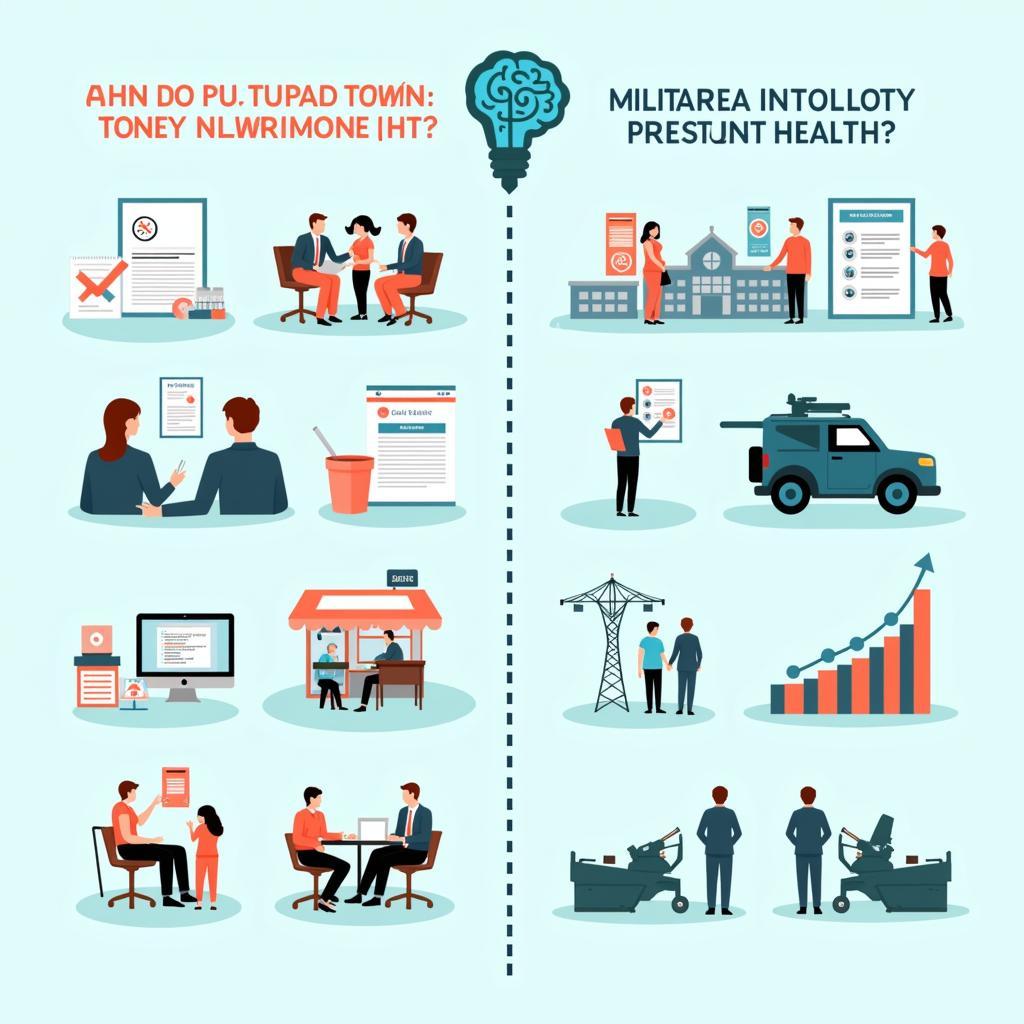Mental health funding versus military spending is a recurring theme in IELTS Writing Task 2, appearing in various forms over the past decade. Based on analysis of recent exam patterns, this topic has shown increased frequency, particularly in countries facing mental health challenges post-pandemic.
Let’s examine a recent IELTS Task 2 question on this topic:
Some people believe that governments should spend more money on mental health services rather than on military defense. To what extent do you agree or disagree?
Essay Analysis
This question requires candidates to:
- Take a clear position on government spending priorities
- Compare two distinct areas of public expenditure
- Support arguments with relevant examples
- Provide a balanced discussion while maintaining a clear stance

Band 8 Model Answer
Mental health and national defense are both crucial aspects of a nation’s wellbeing, but I strongly believe that governments should allocate more resources to mental health services than military spending in today’s context.
The primary argument for prioritizing mental health funding lies in its direct impact on society’s productivity and wellbeing. Studies have shown that mental health issues cost global economies approximately $1 trillion annually in lost productivity. When governments invest in accessible mental health services, they enable early intervention and prevention, reducing the long-term societal and economic burden of untreated mental illness. For instance, countries like Norway and Finland, which have robust mental health systems, report higher levels of citizen wellbeing and workplace productivity.
Furthermore, adequate mental health funding can actually enhance national security. A mentally healthy population is more resilient and better equipped to handle various challenges, including potential security threats. Many veterans suffer from PTSD and other mental health conditions, demonstrating how military capabilities and mental health services are interconnected. By investing in mental health infrastructure, governments can ensure both civilian and military personnel receive necessary psychological support.
While military defense remains important, many nations currently overspend on military equipment while underfunding essential health services. The global military expenditure reached $2.1 trillion in 2021, yet mental health receives apenas fraction of this amount. This imbalance needs correction, especially considering that modern security threats often require diplomatic and psychological resilience rather than purely military solutions.
In conclusion, while both sectors deserve attention, the evidence strongly suggests that increasing mental health funding would yield greater societal benefits than maintaining excessive military budgets. Governments should reassess their spending priorities to create a more balanced and healthy society.
Band 6.5 Model Answer
I agree that governments should spend more money on mental health services instead of military defense because mental health problems are becoming more serious in modern society.
Firstly, mental health services can help many people who are suffering from depression and anxiety. In my country, many young people face stress from work and study, but they cannot afford expensive treatment. If the government provides more budget for mental health care, more people can get help when they need it. Also, better mental health services can prevent serious problems like suicide.
However, some people think military defense is more important because it protects the country from enemies. They say that without strong military power, a country cannot be safe and peaceful. This is true, but I think most countries already spend too much money on weapons and military equipment.
Another reason why mental health should get more funding is that it can save money in the long term. When people get proper mental health treatment, they can work better and contribute to the economy. But if mental health problems are not treated, they become worse and cost more to fix later.
In conclusion, I believe governments should focus more on mental health services because it helps citizens directly and can prevent bigger problems in society. While military defense is necessary, mental health deserves more attention and funding.
Key Vocabulary
- allocate (v) /ˈæləkeɪt/ – to distribute for a specific purpose
- intervention (n) /ˌɪntəˈvenʃən/ – action taken to improve a situation
- resilient (adj) /rɪˈzɪliənt/ – able to recover quickly from difficulties
- infrastructure (n) /ˈɪnfrəstrʌktʃə/ – basic systems and services
- expenditure (n) /ɪkˈspendɪtʃə/ – the act of spending money
- PTSD (n) /ˌpiː tiː es ˈdiː/ – Post-Traumatic Stress Disorder
- diplomatic (adj) /ˌdɪpləˈmætɪk/ – relating to managing international relations
- overspend (v) /ˌəʊvəˈspend/ – to spend more than necessary or planned
Conclusion
The topic of mental health versus military spending remains relevant for IELTS candidates. Future variations might include:
- Comparing mental health funding with other government priorities
- Discussing the balance between different healthcare sectors
- Examining the relationship between social services and national security
Practice writing your own essay on this topic and share it in the comments for feedback and discussion.